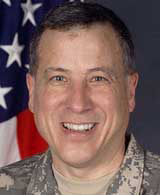Guest Editorial
BY LAWRENCE SELLIN | JUNE 19, 2013
Obama’s dystopia
 Throughout history, in many cultures and societies, from Plato’s “Republic” to the French Revolution to “The Communist Manifesto”, humankind has sought to design and construct an ideal society, a utopia, where humanity lives in harmony with nature, where people’s desires are limited and their needs equitably fulfilled and where there would be no motives for war or oppression.
Throughout history, in many cultures and societies, from Plato’s “Republic” to the French Revolution to “The Communist Manifesto”, humankind has sought to design and construct an ideal society, a utopia, where humanity lives in harmony with nature, where people’s desires are limited and their needs equitably fulfilled and where there would be no motives for war or oppression.
The road to utopia is always paved with good intentions, but in every case the opposite, a dystopia, has been the inevitable result and the external reality of all failed utopian agenda.
A dystopia is characterized by a cataclysmic decline of a society, in which a totalitarian government enforces ruthless egalitarianism by suppressing or denouncing ability and accomplishment, or even competence, as forms of inequality. It creates dependency on the state and attempts to eradicate the family by deploying continuing efforts to keep it from reestablishing itself as a social institution.
In his article, “Why Americans Are Not Taught History,” Christopher Hitchens, indirectly identified the vulnerability of America’s present-tense culture to the utopian myth and the means by which Obama is executing his fundamental transformation of the United States.
That is, for the true blissed-out and vacant servitude required by the Obama strategy, you need an otherwise sophisticated society that lacks any sense of itself through an understanding of its own history and traditions. Through media deception and historical revisionism, the low-information voter will slouch towards Obama’s utopia by a combination of governmental coercion as in George Orwell’s “Nineteen Eighty-Four” and the hedonist nihilism of a painless, amusement-sodden, and stress-free consensus managed by the nanny-state found in Aldous Huxley’s “Brave New World.”
In his book “Amusing Ourselves to Death,” Neil Postman notes that in “Nineteen Eighty-Four”, people are controlled by inflicting pain; in “Brave New World”, they are controlled by inflicting pleasure. Orwell feared we would become a captive culture. Huxley feared we would become a trivial culture. Obama plans to do both.
Like “Nineteen Eighty-Four”, Obama’s dystopia will be a world of perpetual crisis, omnipresent government surveillance, misinformation and manipulation by state-controlled media; all governed by a privileged, hedonistic and shallow political elite led by a quasi-divine party leader who enjoys an intense cult of personality and considers free will as a source of unhappiness.
In a dystopia, the government does not derive its power by consent of the governed, but by control and extortion of the people, where truth becomes a commodity of the state.
When a government is ruled by men unconstrained by law, there are few things that power cannot do. It can make political allies rich or political enemy paupers. It can waste billions of dollars without accountability and destroy an economy without responsibility. It can make incompetent men high officials or make extraordinary men corpses.
No matter how idealistic are the foundations of the United States or how honorable its previous history, the accumulation of excessive power in the federal government transforms it into a dysfunctional super-state dedicated to maintaining its own power irrespective of the truth or the well-being of the country, except when it serves the interests of the state.
The bureaucrats of the super-state can ignore both morality and the lessons of history in order to protect the appetite for and the use of raw power. Under such circumstances, the government need not fear that any of its agencies will intervene on behalf of the people, nor will it hear any protests from the elected representatives of the people, nor anything but polite questions from the national media.
In a dystopia, history, truth and the law are just chalk-writing on a blackboard, which can be erased and rewritten whenever it suits the convenience and desires of a government of perfidious men.
Lawrence Sellin, Ph.D. is a retired colonel with 29 years of service in the U.S. Army Reserve and a veteran of Afghanistan and Iraq. Colonel Sellin is the author of “Afghanistan and the Culture of Military Leadership“. He receives email at [email protected].



